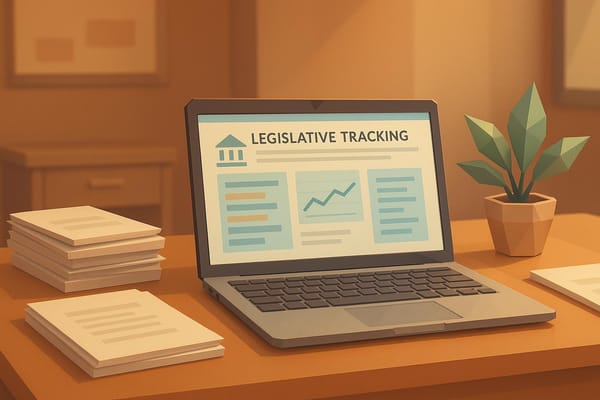Alabama Pharmacy Board: HB123 Extends Operations, Revises Rules

This bill, recently introduced in the Alabama Legislature, aims to extend the board's existence until October 1, 2026, while also bringing about key changes in its structure, authority, and operational procedures. This blog post serves as your comprehensive guide to navigating the complexities of HB123. We'll delve into the reconstitution of the board, revisions to penalty structures, and the segregation of the general counsel's office, offering a clear and concise overview of how these changes will impact pharmacy practices in Alabama.
Alabama State Board of Pharmacy Continuance
The core purpose of HB123 is to extend the life of the Alabama State Board of Pharmacy, ensuring its continued functioning until October 1, 2026. This extension is not merely a formality; it signifies the Legislature's recognition of the board's vital role in regulating pharmacy practices across the state. The bill explicitly states, "The existence and functioning of the Alabama State Board of Pharmacy...is continued until October 1, 2026." Without such legislative action, the board would face termination under existing sunset laws. This continuance provides stability for both the board and the professionals it regulates, allowing for consistent oversight and enforcement of pharmacy laws.
However, the extension comes with significant strings attached. The Legislature has mandated several modifications to the board's structure and operations, signaling a desire for enhanced efficiency and accountability. These changes range from the reconstitution of the board's membership to revisions in its disciplinary authority. The rationale behind these modifications likely stems from the Alabama Sunset Committee's periodic review of state agencies, which aims to identify areas for improvement and ensure that agencies are effectively serving their intended purpose. This process is crucial for maintaining public trust and confidence in the regulatory framework governing pharmacy practices.
The extension until 2026 gives the board time to implement these changes and adapt to the evolving needs of the pharmacy profession. It also allows the Legislature to monitor the impact of these changes and make further adjustments as necessary. Therefore, this continuance represents a commitment to ongoing improvement and modernization within the Alabama pharmacy landscape.
Reconstitution of the Board
One of the most significant changes introduced by HB123 is the reconstitution of the Alabama State Board of Pharmacy's membership. The bill proposes expanding the board from five to nine members and altering the composition to include a broader range of perspectives. According to the bill, "Beginning October 1, 2025, the board shall consist of nine members..." This expansion aims to ensure that various stakeholders within the pharmacy profession are adequately represented in the board's decision-making processes.
The reconstituted board will consist of five licensed pharmacists with at least seven years of experience, two licensed pharmacy technicians actively engaged in their profession, and two at-large members, one of whom is a licensed health care professional. This inclusion of pharmacy technicians and a broader representation of healthcare professionals recognizes the evolving roles and responsibilities within the pharmacy sector. Pharmacy technicians, for instance, play an increasingly important role in dispensing medications and providing patient care, making their input invaluable in regulatory matters. The addition of another healthcare professional ensures a multidisciplinary perspective when assessing patient safety and healthcare outcomes.
Furthermore, HB123 mandates that the Governor appoint board members in a manner that ensures each congressional district in the state is represented. This geographic diversity aims to ensure that the board's decisions are sensitive to the unique needs and challenges faced by pharmacies and patients in different regions of Alabama. The bill also includes provisions to stagger the terms of the four new board members, promoting continuity and institutional knowledge. These changes collectively aim to create a more representative, responsive, and effective regulatory body for the pharmacy profession in Alabama.
Revisions to Civil Penalties and Fees
HB123 brings notable changes to the Alabama State Board of Pharmacy's authority regarding civil penalties and fees. The bill revises the board's power to impose civil penalties, authorizes it to impose late fees, and eliminates its authority to adopt nondisciplinary administrative penalties. These changes signify a shift towards a more streamlined and consistent approach to enforcement and regulatory compliance.
The bill clarifies the board's ability to levy civil penalties for violations of pharmacy laws and regulations. This provides the board with a clear mechanism to address non-compliance and deter future violations. Simultaneously, HB123 authorizes the board to impose late fees for overdue permit renewals, incentivizing timely compliance and ensuring the board has the resources necessary to operate effectively. This addresses the board's need for financial stability to carry out regulatory duties.
However, the elimination of the board's authority to adopt nondisciplinary administrative penalties suggests a move away from informal or less severe forms of punishment. This may indicate a legislative preference for more formal disciplinary proceedings in cases of non-compliance. This shift could lead to a more transparent and consistent application of penalties, enhancing fairness and predictability within the regulatory framework. Pharmacists and pharmacy owners should familiarize themselves with these revised penalty structures to ensure full compliance with Alabama pharmacy laws.
General Counsel Division Restructuring
One of the more innovative provisions of HB123 involves restructuring the office of the general counsel of the Alabama State Board of Pharmacy. The bill requires the board to divide the office into two distinct divisions: an administrative division and a disciplinary division. This segregation aims to prevent conflicts of interest and protect confidential information. According to the bill, one division will handle administrative functions, while the other will focus on disciplinary matters. This separation is intended to enhance the fairness and impartiality of disciplinary proceedings.
The administrative division will be responsible for providing advice and guidance to licensees, permit holders, and prospective applicants regarding statutory and regulatory compliance. This division will serve as a resource for pharmacists and pharmacy owners seeking clarification on pharmacy laws and regulations. Meanwhile, the disciplinary division will handle investigations, prosecutions, and other matters related to disciplinary actions. The bill explicitly prohibits the administrative division from disclosing certain information to the disciplinary division, particularly if it relates to inquiries made by licensees or permit holders seeking compliance advice. This provision is designed to encourage open communication and prevent licensees from being penalized for seeking guidance.
By creating these separate divisions, HB123 aims to create a firewall between the advisory and enforcement functions of the general counsel's office. This restructuring should enhance the transparency and integrity of the board's operations, fostering greater trust and confidence among pharmacy professionals in Alabama. The board, by rule, shall establish internal procedures that ensure any inquiries made by the holder of a license, permit, or certificate or other person seeking advice or guidance regarding compliance with a statute or rule is addressed by the administrative division and is not disclosed to the disciplinary division unless an attorney reasonably believes a criminal violation may have occurred.
Reporting on Board Rules and Rule Revision
HB123 mandates that the Alabama State Board of Pharmacy report to the Legislature on the status of its rules and revise them to comply with pharmacy laws, including the provisions of HB123 itself. This requirement underscores the importance of regulatory coherence and transparency. The bill explicitly requires the board to provide a report to the respective chairs and vice chairs of the House Health and Senate Healthcare standing committees, as well as all members of the Sunset Committee and Legislative Council. This reporting obligation ensures that the Legislature remains informed about the board's regulatory activities.
The report must review all rules of the board and identify those rules that conflict with Chapter 23 of Title 34, Code of Alabama 1975, the primary body of law governing pharmacy practices in Alabama. The board must also provide a plan for how to bring all rules into compliance with Chapter 23 no later than October 1, 2026. This deadline ensures that the board promptly addresses any inconsistencies and aligns its regulations with the statutory framework. This part of the law will take effect immediately.
This mandate reflects a legislative desire for greater regulatory certainty and consistency within the pharmacy profession. By requiring the board to review and revise its rules, HB123 aims to eliminate ambiguity, reduce the risk of conflicting interpretations, and promote a more predictable regulatory environment for pharmacists and pharmacy owners in Alabama. The report will be submitted no later than February 1, 2026.
Technical and Non-Substantive Revisions
In addition to the significant changes outlined above, HB123 includes a provision to make non-substantive, technical revisions to update existing code language to current style. While these revisions may seem minor, they play an important role in ensuring the clarity and accuracy of Alabama pharmacy laws. The bill acknowledges the need to modernize legal language and eliminate outdated or ambiguous terminology. These types of revisions may include updating references to other statutes, correcting grammatical errors, or streamlining sentence structure. While they do not alter the fundamental meaning or intent of the law, they enhance its readability and accessibility.
The inclusion of these technical revisions reflects a commitment to maintaining a modern and user-friendly legal framework for pharmacy practices in Alabama. By updating the code language to current style, the Legislature aims to reduce the potential for misinterpretation and promote better understanding of the law among pharmacists, pharmacy technicians, and the public. This aligns with the broader goal of promoting regulatory compliance and fostering a more efficient and effective pharmacy system.
These revisions ensure that Alabama's pharmacy laws remain relevant, accessible, and easy to understand for all stakeholders. This effort to make the code more readable helps all involved in pharmacy practice.
Conclusion
House Bill 123 represents a significant step in shaping the future of pharmacy regulation in Alabama. By extending the life of the Alabama State Board of Pharmacy, reconstituting its membership, revising its penalty structures, and restructuring its general counsel's office, the bill aims to create a more effective, transparent, and responsive regulatory framework. It provides the statutory changes recommended by the Sunset Committee as well as sets the expiration for the board on October 1, 2026.
The changes are designed to enhance the board's ability to oversee pharmacy practices, protect public health, and promote compliance with pharmacy laws. The focus on transparency, accountability, and stakeholder representation underscores the importance of maintaining public trust in the regulatory process. Pharmacists, pharmacy technicians, and other stakeholders should closely monitor the implementation of HB123 and familiarize themselves with the new rules and procedures. The need for all rules to align with Chapter 23 by October 1, 2026 will change many internal processes of the board and will affect licensees throughout the state.
Ultimately, HB123 reflects a commitment to ongoing improvement and modernization within the Alabama pharmacy landscape. By embracing these changes, the state can ensure that its pharmacy system continues to meet the evolving needs of its citizens and maintains the highest standards of patient care. As the board navigates these changes, continuous communication with stakeholders is crucial to ensure smooth implementation and address any unforeseen challenges. The next few years will be critical in evaluating the impact of HB123 and making any necessary adjustments to further strengthen the pharmacy profession in Alabama.




